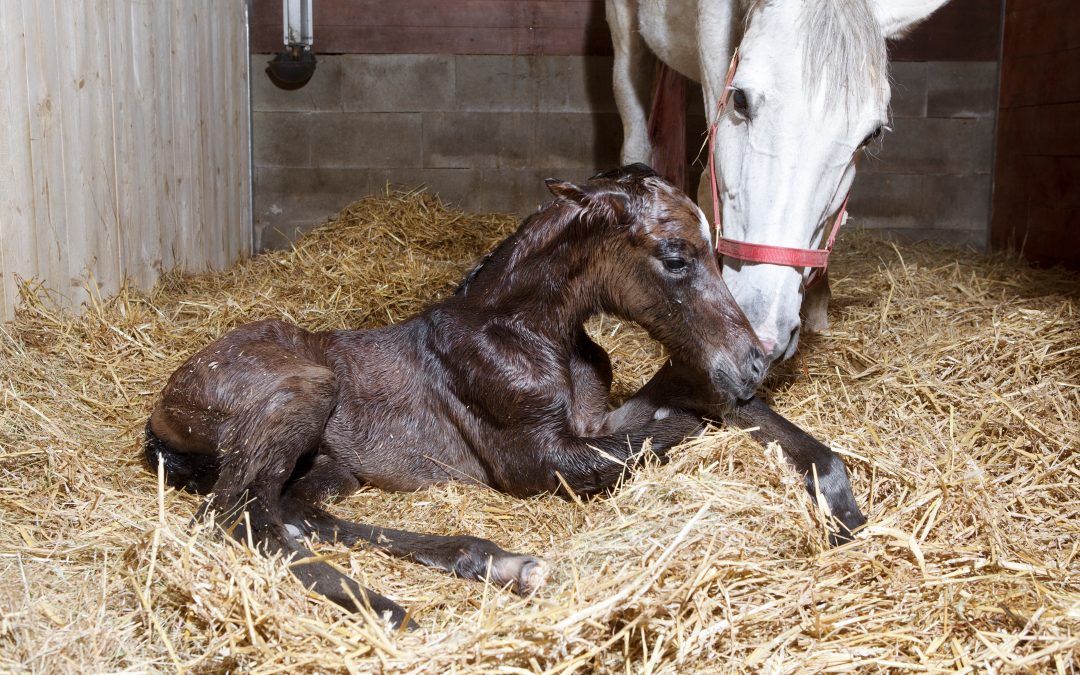When your foal is born:
- It should be have a suck reflex within 20 minutes
- Stand in an hour
- Sucking at the milk bar within 2 hours
A new born foal has no fat reserves so obtains all of its energy from the sweet and sugary colostrum which it must be consumed within the first 6 hours of life. This means a foal is very prone to low blood sugars (hypoglycaemia).
This means foals can deteriorate into illness very rapidly in comparison to adults especially in the first few weeks of life.
In general:
- Foals should consume 20ml/kg of colostrum within the first 6 hours of life to ensure adequate absorption of antibodies.
- This protects the foal from picking up infections for it’s environment.
- The foals weight is normally 10% of the mares bodyweight before pregnancy so a 500kg mare will have a foal that is 50Kg.
- A normal foal will stand, urinate, drink and sleep 20-30 times a day.
- A foal that is not doing this is not normal and veterinary assistance should be sought as soon as you see abnormal behaviour.
What to do when foal is born:
- Vet should check mare and foal over in first 24 hours of life even if there are no immediate cause for concern.
- full clinical exam of mare and foal
- Tetanus antitoxin injection for the foal
- A blood test for IgG should be taken after 18 hours and this determines if the foal has consumed enough colostrum and sufficient transfer of antibodies.
- If the IgG level is below 8g/l – a plasma transfusion is highly recommended.
When to worry:
- Foal not keen to stand and suckle when prompted either by humans or by mare
- Mare disinterested in foal
- Foal sleeping for more than 30 mins at a time
- Foals legs are cold to touch
- Loss of suck reflex
- Foal not keen to play either in or out of stable
- Wet umbilical chord or signs of fluid coming from this area
- Straining to urinate without producing any wee.
- Diarrhoea that isn’t related to foal heat (which occurs in the first 7 days and lasts about 48 hrs)
- Foals with mild diarrhoea that are otherwise bright and healthy will often resolve spontaneously without any intervention.
- Foals that are lethargic, febrile, have watery/bloody diarrhoea require prompt intensive veterinary treatment.
Causes of lethargy:
- Maladjustment syndrome – dummy foal
- Hypoxia
- Hypoglycaemia
- Hypothermia
- Septicaemia
- Dehydration
The above signs are a veterinary emergency. The sooner sick foals are seen the more likely they are to survive. While waiting for the vet you can ensure your foal is kept warm and dry.
Your newborn foal’s health is paramount, and being proactive in monitoring for signs of illness is key to ensuring their well-being. By promptly addressing any concerns and seeking veterinary guidance when necessary, you can set your foal on the path to a healthy and vibrant life.

